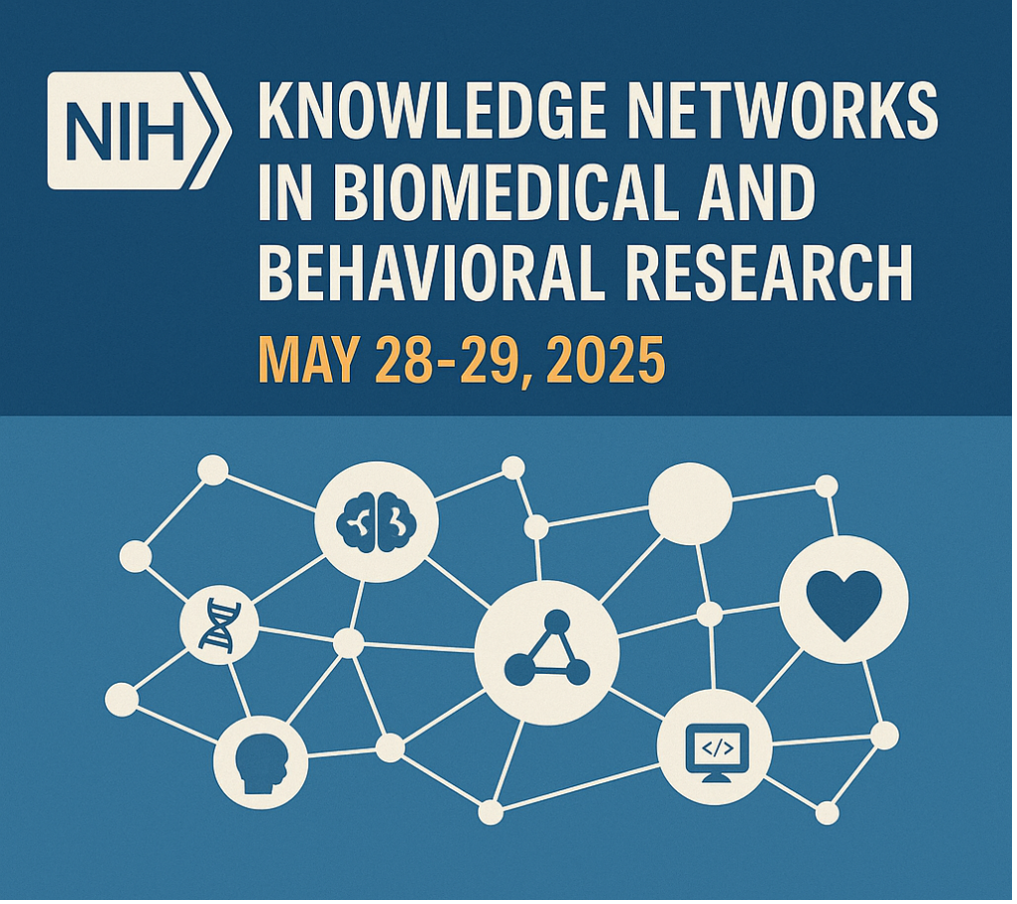
The NIH organized a 1.5-day meeting “Exploring the Applications of Knowledge Networks in Biomedical and Behavioral Research" to discuss the opportunities and challenges in the knowledge graph/knowledge network research. Discussion topics include challenges for data and knowledge discovery, strategies for facilitating developments in trustworthy AI technologies/approaches built upon knowledge networks, and considerations for ethical, transparent, and informed reuse of data, knowledge and models in this rapidly evolving field.
The meeting discussions identified six desired properties of a biomedical knowledge network:
- Inference and reasoning need domain-centric approaches;
- Knowledge network representation and metadata require harmonized and accessible standards;
- Robust validation of knowledge graphs needs multi-layered, context-aware approaches that are rigorous and scalable;
- Large language models are essential in empowering AI-driven discovery;
- Integrated development environments, public repositories, and governance frameworks are essential for secure and reproducible knowledge network sharing; and
- Robust validation, provenance, and ethical governance are critical for trustworthy knowledge networks


